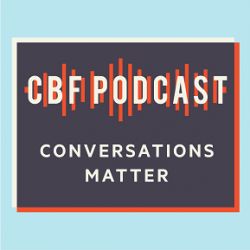By Bert Montgomery

At an after-worship Sunday afternoon lunch recently, the self-identified “nontheist Quaker” in our church (that’ll give you something to think about) asked me about my views on the Trinity. I paused, smiled, then quoted one of my favorite theologians, Waylon Jennings, who once replied to a similar question, “Yeah.”
Yes, I am referring to that Waylon — as in “Luckenbach, Texas,” and “Waylon and Willie and the boys.”
The Reverend Will D. Campbell (another of my favorite theologians) once served as the tour bus cook for Waylon and his band. When you’re a renegade Baptist preacher and a writer of non-bestselling books, you tend to have to find other ways to earn a living.
One long, quiet night as the tour bus rolled along the dark highway from one town to the next, Brother Will asked, “Waylon, what do you believe?” Waylon simply replied, “yeah…”
After a long silence Bro. Will pressed him further. “‘Yeah?’ What’s that supposed to mean?”
After another long, reflective silence, Waylon answered, “Uh-huh.” Bro. Will wrote, “That ended my prying into the state of ole Waylon’s soul.”
Many pastors will tell you, if they feel they can be honest, they can’t explain the uniquely Christian doctrine of the Trinity any better than a newborn baby could. One theologian said trying to explain the Trinity is like asking oysters to explain a ballerina.
The term “Trinity” does not appear anywhere in our Bibles. We do have images of God over and over and over again presenting God as a parent (both as a father and as a mother) which help us relate to God and understand how God relates to us. We also have the Gospels and other New Testament writings that speak of the Son of God. And, yes, we have many, many references to the Spirit of God moving, inspiring, overwhelming, and blowing uncontrollably like the wind. Yet not even the Apostle Paul, who personally constructed so much of our Christian theology, thought to compress our experiences of God into a box and label it “The Trinity.”
That happened over the course of a few centuries among early Christians and theologians when they were trying to further distinguish themselves from Greek philosophies and traditional Jewish beliefs (among other things). It was then that the notion of “God in Three Persons” emerged. Eventually, of course, it became a deeply treasured distinctive of our faith. And, ever since, Christians have been disagreeing and fighting over our intellectual understandings of the equality of each Person in the Trinity, the appropriate hierarchy of authority and subordination of One over the Others, and so on.
I used to know some of the different Christian arguments about the Trinity, and I used to be able to recite convincingly the dominant Baptist teachings and explanations of the Father, Son, and Holy Spirit.
As I have grown older, however, I realized nobody becomes a “better Christian” or learns to walk more closely with Jesus because they commit themselves to any one of the plethora of statements of belief about the Holy Trinity.
We encounter God in a variety of ways because God is always pursuing us and reaching out to us and seeking a relationship with us: through revelations of nature, healthy relationships with our parents, and through wild, irrational, gut-level pulls from within, which blow us around every which way. We meet Christ in our neighbors, in total strangers, and especially in any person we have categorized as different than ourselves, as less deserving than ourselves, and as in any way not equal to ourselves.
Still, all our mental gymnastics designed to grasp and explain God ultimately fall short. Whatever we think about the Triune nature of God, in the end we are still swimming in Deep Mystery.
So, what do I have to say about the Holy Trinity? Again, I quote the late, great Waylon: “uh-huh.” And, as Bro. Will said about Waylon’s confession of faith, “Maybe that’s as close as any of us ever get.”
Rev. Bert Montgomery is pastor of University Baptist Church in Starkville, Miss., the author of the non-bestselling books Elvis, Willie, Jesus & Me, Of Mice & Ministers, and Psychic Pancakes & Communion Pizza, and he yearns for us all to get back to the basics of Love. You can reach him at [email protected].
Note: The views expressed here in columns and commentaries are solely those of the authors.
Interested in writing for CBF at Patheos? Submit your column idea to CBF Communications Director Aaron Weaver at [email protected].











